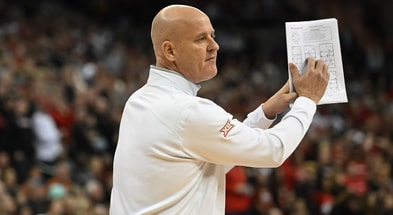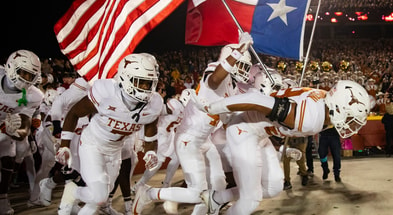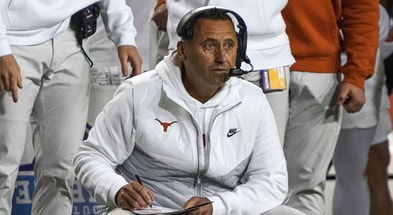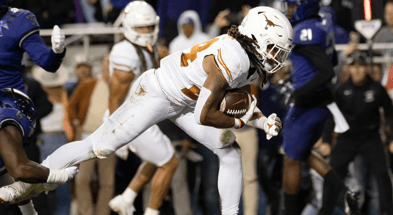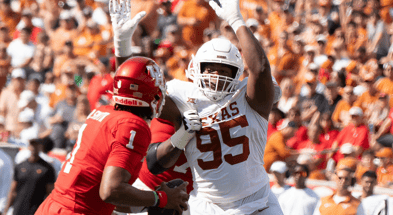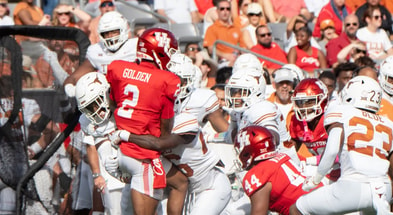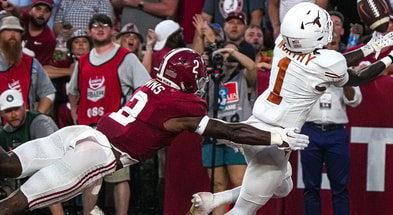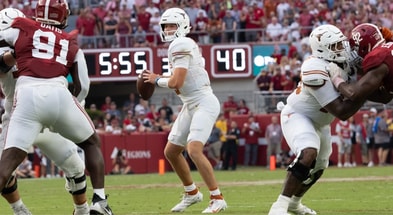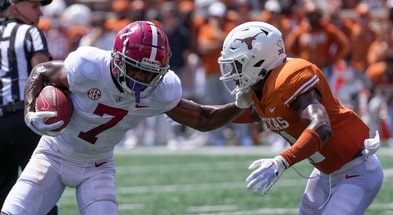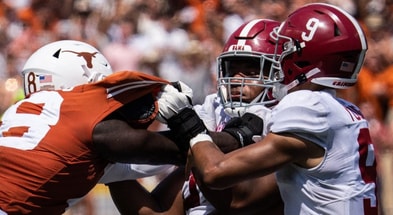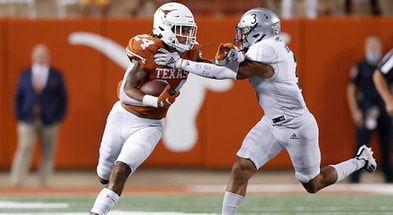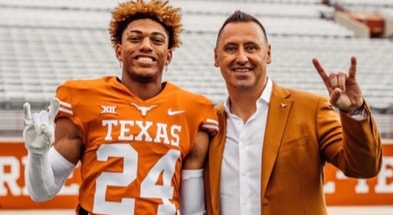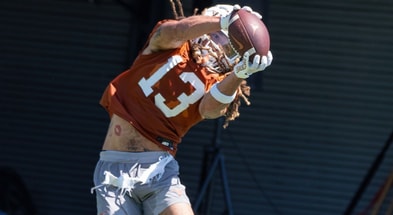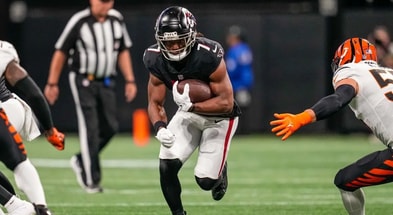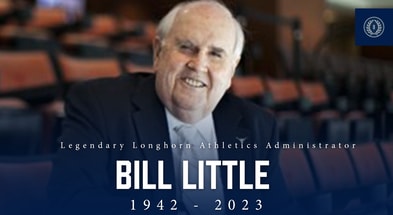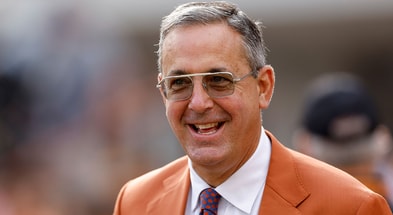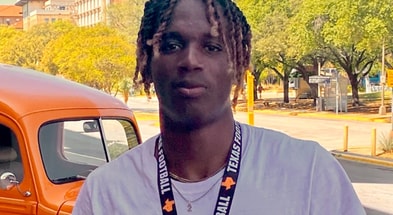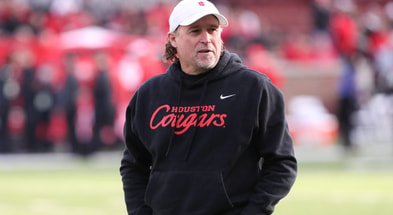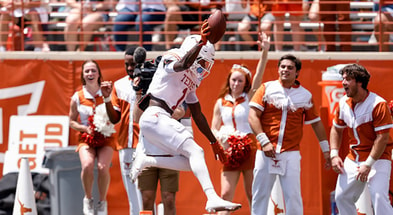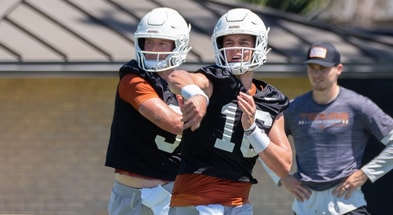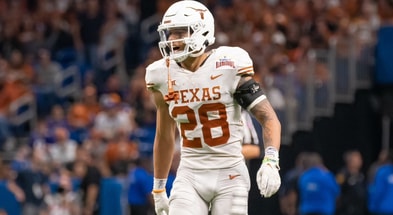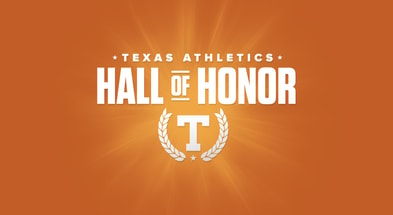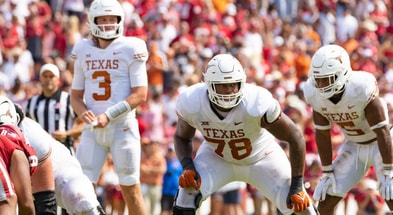Upon Further Review
Hindsight is 20-20, and there’s always plenty of second-guessing after a loss. Texas coaches and players have said there are things they would have done differently in Lubbock…but not in every case.
Perhaps the most pressing question is whether Texas should have relied earlier on RB Fozzy Whittaker (42 yards on six carries) and WR Malcolm Williams (182 yards and two TDs on six catches). WR Quan Cosby’s (back) injury following his first reception rattled the offense; the reliable senior understandably provides a sense of “security,” coordinator Greg Davis said. But it’s difficult to find another security blanket when younger receivers — and even Jordan Shipley — let balls bounce off their jerseys. The ripple effect was QB Colt McCoy stayed too long in the pocket, looking for an open — and trusted — receiver. The end result was a season-high four sacks. The fact that Davis fears Whitaker is too undersized to fend off blitzes (even against a team like Tech that blitzes less than 20 percent of the time) is part of what kept him sidelined.
“They did a good job of bringing four guys and twisting and turning,” McCoy said. “The offensive line did a good job of handling it in the second half.”
Jones Stadium is the most hostile venue in the Big 12, Texas players said all week. As such, coaches were hesitant to insert a relatively untested RS-freshman into that type of “environment,” coach Mack Brown said, or at least not in the early going. Texas’ ground game got untracked when it departed from its four-wide sets and started running some counters with a TE in the lineup.
It also took McCoy a while to trust Williams as a reliable target. The game plan was to flex Cosby to the outside because Davis believed Texas did not match-up as well by attacking the middle.
“We thought we could catch one-on-one coverage and have an opportunity for the deep ball,” Davis said.
Shipley assumed the position following Cosby’s injury, but Tech defenders began bracketing Shipley. It forced McCoy to finally look to younger receivers on underneath routes. By then, Texas was well on its way to dropping seven passes on the evening. There was a simple explanation for the sudden bout of butterfingers, Davis believes.
“It has to be focus. They’re not bad catchers. The environment probably had less to do with it (than focus). They’ve been in some pretty good environments. That one in Dallas (against Oklahoma) was a pretty loud environment. We didn’t play to our standards. If we had done that, we’d be having a different conversation today.”
The conversation includes clock management. Typically, leaving less than 90 ticks on the game clock after you’ve rallied to a one-point lead is an acceptable piece of clock management. But Tech is no ordinary offense, so this is the one area where Mack Brown is kicking himself the most. But when you trail for the majority of the contest, Brown said, the impetus was simply to score.
“I was screaming at Colt to get him to let the clock run down on the counter play,” Brown said. “It’s the only time all night we did something good and scored too fast…Colt was fighting for his life. Very honestly, you wouldn’t mind turning it over to your defense with 1:27 left.”
McCoy was asked why he chose to stop the clock by running out of bounds following a keeper on Texas’ final drive.
“I didn’t want to get hit again,” McCoy conceded. McCoy was bloodied early. A vicious hit ripped the upper labial frenulum in his mouth; trainers would slice the dangling skin between his lip and gum. The injury was still affecting McCoy’s speech pattern this week. Said McCoy of his upper labial frenulum, “I didn’t need it any way.”
.
Presumably, defensive coordinator Will Muschamp still sees WR Michael Crabtree’s last-second, game-winning TD in his sleep.
“You play it 100 times in your mind: what do you do differently?” Muschamp said. “I felt like the ball was going there. We had two guys on him. They made the play; we didn’t. You question yourself as a play-caller because, obviously, it didn’t work. You go back through your thought process. I felt like, in that situation, we had the right call, and it didn’t work.”
Texas opened in the dime package but went with a nickel defense and cover-2 zone as the game progressed. The Horns initially loaded up on the “trip-side” (three-wide) but the Red Raiders compensated by emphasizing the SE.
“We got into a guessing game with what they were doing,” Muschamp said. “It was a check with me at the line based on our alignment.”
In the end, Texas bracketed Crabtree with safety Earl Thomas over the top and RCB Curtis Brown underneath.
“I don’t like, in those situations, to rush three and drop eight. (Harrell) held the ball for so long, and they were so proficient in getting open based on the scramble-pass. I wanted to rush four guys. Every time we brought five or more, he went straight to (Crabtree). Like everybody else, we had a hard time covering him. I felt good about rushing four guys. We had pushed the pocket…We got our first sack off the five-man pressure but, as the game wore on and he saw middle-field coverage, that’s where he went with the ball. I felt that rushing four and playing some form of match, cover-2 or a bracket where we were doubling (Crabtree) was the best situation for us to be in and make us beat him left-handed….(Harrell) made a phenomenal throw and the kid made a great effort to catch the ball,” Muschamp said. “In that situation, you’re thinking they’ll try to get seven yards to get them closer for a field goal, so you play over-under coverage on him.”
Brown went for the INT while slow-to-arrive Thomas thought Crabtree had stepped out of bounds. Instead, Crabtree stepped into the end zone after breaking two tackles and after safety Blake Gideon mishandled what would have been a game-saving INT on the previous play.
“Not one player loses a football game,” Muschamp concluded. “There are a lot of plays and a lot of calls that are made during a game. Not one play lost that football game. Anybody that thinks that has never been an athlete and has never competed.”
